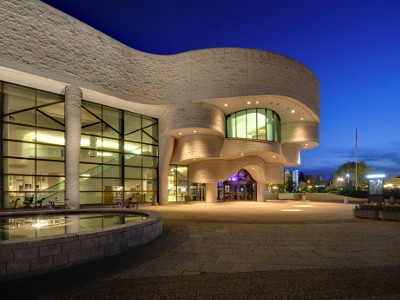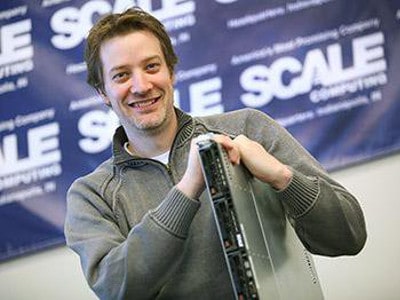
 While legacy IT departments struggle with bringing their infrastructure from the 20th into the 21st century, a particular set of challenges lies ahead outside the corporate sector, mainly in cash-strapped public sector or education IT departments.
While legacy IT departments struggle with bringing their infrastructure from the 20th into the 21st century, a particular set of challenges lies ahead outside the corporate sector, mainly in cash-strapped public sector or education IT departments.
One method that has found rapid uptake is hyperconvergence, which collapses the various layers of virtualization software, management tools, storage area networks or network attached storage into a single seamlessly integrated platform.
With 24 schools serving 2,900 primarily First Nation and Métis students spread across a 110,000 square mile expanse of northern Alberta, Northland School Division No. 61 has specific challenges in ensuring access for its students to the tools necessary for their successful education.
The school board has a staff of 550, 200 of whom are teachers. With on-premise servers at each school, a team of four tried as best as they could to ensure their smooth functioning across the division.
Working in a huge, geographically sparse territory, many of the more remote schools had bandwidth issues.
Based in Peace River, Alberta, the Northland School Division’s old system at their central office had a Hyper-V system built on HP servers and storage area networks, configured as direct attached storage, which was hardly ideal for providing fault-tolerant protection for its virtualized infrastructure.
In short, the school division knew that if one of their virtual machines’ nodes failed, they were toast.
Network administrator for the Northland School Division Jason Juneau figured there was perhaps a year left of useful life on his hardware.
In shopping around for new infrastructure options, Juneau considered products from Tintri and Nimble Storage before coming across Scale Computing‘s HC3 hyperconvergence platform at a vendor conference demonstration.
“Once we saw that we could get the features we wanted with the fault tolerance we needed and the potential for some neat and tidy disaster recovery in a small footprint that was simple and easy to manage, then the Scale system made the most sense,” said Northland School Division No. 61 network administrator Jason Juneau. “The ease of use of Scale was amazing and that’s what won us over. We don’t have to be provisioning disk space on traditional SANs and LUNs and stuff like that. It’s very simple.”
Indianapolis-based Scale Computing expanded to Canada last year, opening a Toronto office to support increasing demand for its HC3 virtualization platform, which is pitched mainly at mid-sized users.
Their HC3 platform integrates storage, servers, virtualization and management into a single system, with no virtualization software to license or external storage to buy.
This brings out-of-pocket costs down and simplifies infrastructure, making infrastructure both more available and scalable while deployment and management becomes easier to manage as a single server.
Upon delivery, Juneau said the most complicated thing he faced installing the HC3 was “to rack, stack and cable it.”
“Once all of our servers were up and running, I didn’t have to look at the Scale system very often,” he said. “We don’t need to. The individual VMs are managed a little bit. But we hardly know it’s there – and that’s a good thing.”
Thirty minutes after powering the HC3, Juneau had the system up and running, and within an hour was building virtual machines, with the division’s three-node cluster running 19 virtual machines, with their Microsoft applications, Active Directory servers, SQL servers, file and print servers, Xerox DocuShares and several web servers for internal use.
“Educational organizations around the world would be well served to look to a hyperconverged approach when their existing infrastructure reaches the end of its useful life,” said Scale Computing CEO and co-founder Jeff Ready. “With no separate storage to buy, no servers needing to be managed and virtualization that’s built into our all-in-one HC3 platform, we have made fault-tolerant data protection for the Northland School Division easy and cost effective compared to traditional physical or virtual deployments.”
Juneau is looking at utilizing a second cluster at an offsite location for disaster recovery purposes, and may partner with a neighbouring school division to provide remote disaster recovery between sites to provide even greater protection for the school division’s IT infrastructure.
Leave a Reply
You must be logged in to post a comment.






 Share
Share Tweet
Tweet Share
Share




Comment